1905 – Eminent Indian essayist and writer in English considered as one of the pioneers of Indo-Anglican fiction, Mulk Raj Anand was born. Anand’s works were based on the evils that persisted in those times like untouchability and casteism. He penned his first essay based on an incident in his family in which all communications with his aunt were cut off because she had shared her meal with a muslim.
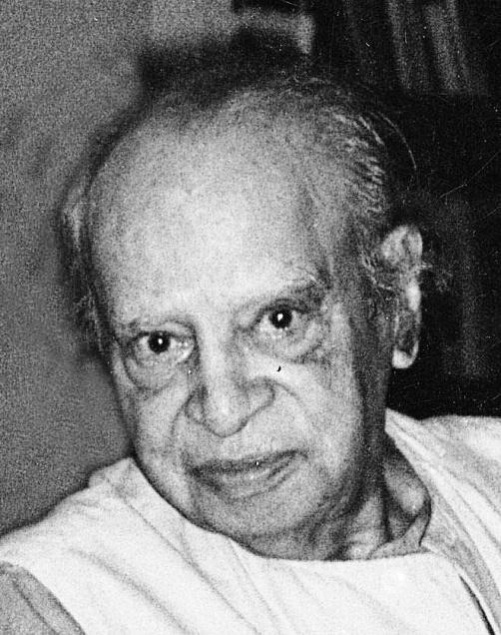
In 1935, Anand brought out his first novel ‘Untouchable’. The book was well received and much appreciated. Noted literateur E. M. Forster wrote the introduction for ‘Untouchable’. He was involved in India’s struggle for Independence even when outside India. Some of his prominent works include Coolie (1936), The Village (1939), Across the Black Waters (1939), The Sword and the Sickle (1942) and The Private Life of an Indian Prince (1953). His ‘Morning Face'(1968), one of the seven parts of an autobiography won him the Sahitya Akademi Award.
1919 – Bhausaheb Babasaheb Nimbalkar, the only cricketer in the history of Indian cricket to have scored a quadruple century, was born. During the season of 1948, Nimbalkar struck a mammoth 443 N.O. for Maharashtra against Kathiawar at Pune as they posted 826 runs for 4 wickets. Kathiawar conceded the match at lunch and unfortunately Nimbalkar could not surpass Sir Donald Bradman’s 452 N.O. Ironically, in spite of his impressive first-class career statistics, Nimbalkar never played a test match for India. When Nimbalkar call it a day he had amassed 4841 runs from 80 matches at an impressive 56.72.
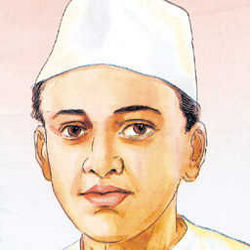
1930 – Great Freedom Fighter ‘Hutatma’ Babu Genu embraced martyrdom. On this day in 1930, Babu Genu along with his colleagues protested the entry of foreign goods and made every effort to prevent the same. The police held them back to make way for the trucks that carried the goods. However, Babu Genu managed to free himself and lay on the road in a bid to block the truck’s path. The truck driver being Indian refused to drive over Babu Genu. This angered the then Officer-in-Charge who took control of the truck and ran over Babu Genu. Babu Genu’s sacrifice infused vigour and triggered a wave of protests, strikes and agitations.
1950 – One of the most popular actors of all-time, Shivaji Rao Gaikwad or ‘Rajinikanth’ was born. Rajinikanth made his debut in the K. Balachander’s ‘Apoorva Raagangal’ also featuring Kamal Haasan and Srividya. The film won the National Film Award for Best Feature Film in Tamil. Subsequently, Rajinikanth appeared in a number of supporting but pivotal roles. In 1977, he got his lead role in Eranki Sharma’s Telugu film ‘Chilakamma Cheppindi’. The film won the ‘Nandi Award’ as the Best Feature Film. ‘Bairavi'(1978) was the first Tamil film that featured Rajini in the lead role. He rose to the status of ‘Superstar’ in the 70s and his films were immensely successful at the box office. He also appeared in many Bollywood films.
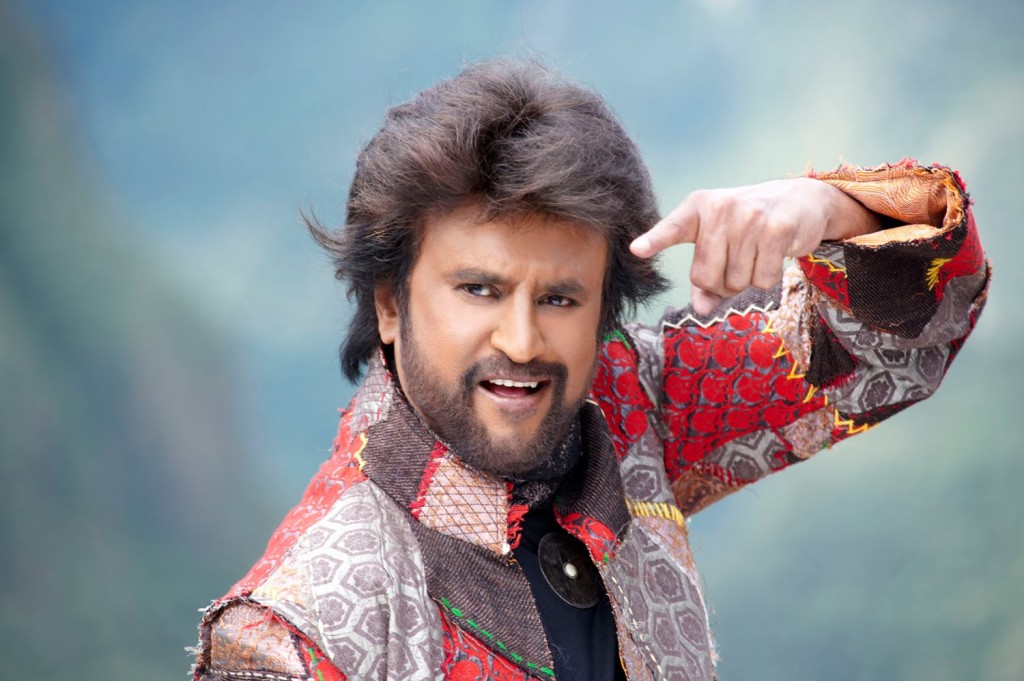
In 2002, Rajinikanth made a comeback with ‘Baba’ after a break. The film bombed at the box office and was also panned by critics. It was also condemned for smoking and drinking scenes. However, in 2005, Rajinikanth starred in P. Vasu’s ‘Chandramukhi’ that went on to become the longest running Tamil film. ‘Sivaji: The Boss’ released in 2007 was a major success and so was 2011 release sci-fi ‘Enthiran’. Rajinikanth is easily one of the most popular actors in the history of Indian Cinema. He is admired for his dialogues, stunts, style and charisma laced with modesty. In a career of over thirty- five years, Rajinikanth has won numerous awards and earned several nominations. In 2000, he received the civilian honour of ‘Padma Bhushan’.
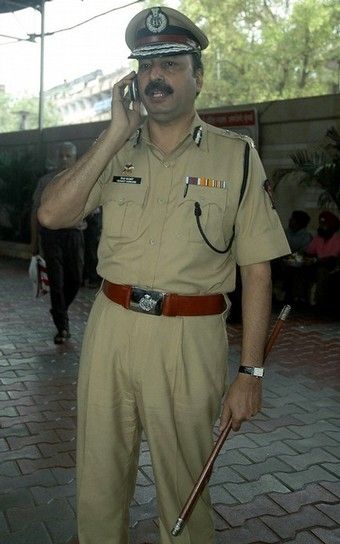
1954 – Chief of the Anti-Terrorist Squad in Mumbai, Hemant Karkare was born. He embraced martyrdom while fighting terrorists on the fateful night of November 26, 2008. In 2009, he was honoured with the ‘Ashoka Chakra’ for his gallantry.
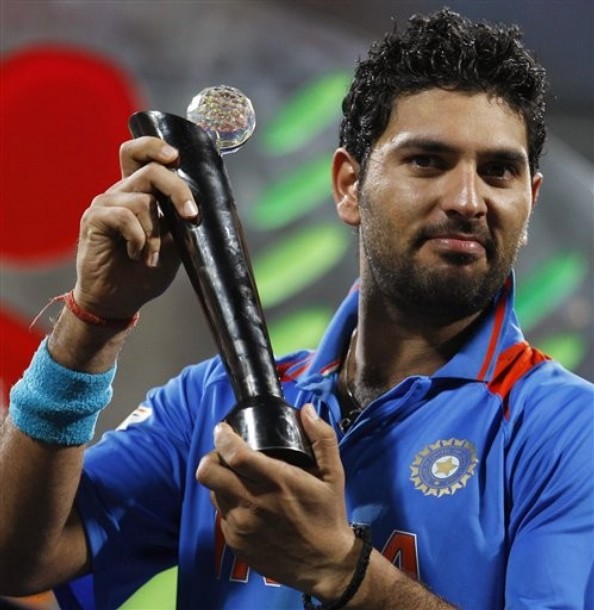
1981- Flamboyant batting all-rounder Yuvraj Singh was born. He made his debut against Kenya in 2000 in the ICC Knock-Out tournament while he earned his test cap versus New Zealand in 2003. The Stylish middle-order batsman has regularly contributed to the team’s winning cause both in India and abroad. He featured in the crucial partnership with Mohammad Kaif that helped India clinch the Natwest Triangular Series. After a disastrous ODI World Cup in 2007 in West Indies, Yuvraj was picked for the ICC World Twenty20 Competition. Yuvraj was impressive in the tournament especially against the English and the Australians. In the match played on September 19, 2007 at Kingsmead in Durban, Yuvraj struck six sixes off a Stuart Broad over. He also went on to register the fastest fifty (in twelve balls) in a T20 game in the same match. He also scored an impressive 70 runs off 30 balls against Australia, a feat that earned him the Man of the Match. In 2010, he lost his place in the ODI team for the first time however he was recalled for the 2011 World Cup. The tournament helped Yuvraj make a strong comeback statement as he amassed 362 runs and picked 15 wickets to emerge as the Man of the Match on four occasions and lift the Player of the Tournament trophy along with the coveted World Championship. In the same year he was diagnosed with cancer but he battled it successfully and resumed playing for India in 2012. In August 2012, Yuvraj Singh was conferred the prestigious ‘Arjuna Award’ by President Shri Pranab Mukherjee.
1905 – Eminent Indian essayist and writer in English considered as one of the pioneers of Indo-Anglican fiction, Mulk Raj Anand was born. Anand’s works were based on the evils that persisted in those times like untouchability and casteism. He penned his first essay based on an incident in his family in which all communications with his aunt were cut off because she had shared her meal with a muslim.
In 1935, Anand brought out his first novel ‘Untouchable’. The book was well received and much appreciated. Noted literateur E. M. Forster wrote the introduction for ‘Untouchable’. He was involved in India’s struggle for Independence even when outside India. Some of his prominent works include Coolie (1936), The Village (1939), Across the Black Waters (1939), The Sword and the Sickle (1942) and The Private Life of an Indian Prince (1953). His ‘Morning Face'(1968), one of the seven parts of an autobiography won him the Sahitya Akademi Award.
1919 – Bhausaheb Babasaheb Nimbalkar, the only cricketer in the history of Indian cricket to have scored a quadruple century, was born. During the season of 1948, Nimbalkar struck a mammoth 443 N.O. for Maharashtra against Kathiawar at Pune as they posted 826 runs for 4 wickets. Kathiawar conceded the match at lunch and unfortunately Nimbalkar could not surpass Sir Donald Bradman’s 452 N.O. Ironically, in spite of his impressive first-class career statistics, Nimbalkar never played a test match for India. When Nimbalkar call it a day he had amassed 4841 runs from 80 matches at an impressive 56.72.
1930 – Great Freedom Fighter ‘Hutatma’ Babu Genu embraced martyrdom. On this day in 1930, Babu Genu along with his colleagues protested the entry of foreign goods and made every effort to prevent the same. The police held them back to make way for the trucks that carried the goods. However, Babu Genu managed to free himself and lay on the road in a bid to block the truck’s path. The truck driver being Indian refused to drive over Babu Genu. This angered the then Officer-in-Charge who took control of the truck and ran over Babu Genu. Babu Genu’s sacrifice infused vigour and triggered a wave of protests, strikes and agitations.
1950 – One of the most popular actors of all-time, Shivaji Rao Gaikwad or ‘Rajinikanth’ was born. Rajinikanth made his debut in the K. Balachander’s ‘Apoorva Raagangal’ also featuring Kamal Haasan and Srividya. The film won the National Film Award for Best Feature Film in Tamil. Subsequently, Rajinikanth appeared in a number of supporting but pivotal roles. In 1977, he got his lead role in Eranki Sharma’s Telugu film ‘Chilakamma Cheppindi’. The film won the ‘Nandi Award’ as the Best Feature Film. ‘Bairavi'(1978) was the first Tamil film that featured Rajini in the lead role. He rose to the status of ‘Superstar’ in the 70s and his films were immensely successful at the box office. He also appeared in many Bollywood films.
In 2002, Rajinikanth made a comeback with ‘Baba’ after a break. The film bombed at the box office and was also panned by critics. It was also condemned for smoking and drinking scenes. However, in 2005, Rajinikanth starred in P. Vasu’s ‘Chandramukhi’ that went on to become the longest running Tamil film. ‘Sivaji: The Boss’ released in 2007 was a major success and so was 2011 release sci-fi ‘Enthiran’. Rajinikanth is easily one of the most popular actors in the history of Indian Cinema. He is admired for his dialogues, stunts, style and charisma laced with modesty. In a career of over thirty- five years, Rajinikanth has won numerous awards and earned several nominations. In 2000, he received the civilian honour of ‘Padma Bhushan’.
1954 – Chief of the Anti-Terrorist Squad in Mumbai, Hemant Karkare was born. He embraced martyrdom while fighting terrorists on the fateful night of November 26, 2008. In 2009, he was honoured with the ‘Ashoka Chakra’ for his gallantry.
1981- Flamboyant batting all-rounder Yuvraj Singh was born. He made his debut against Kenya in 2000 in the ICC Knock-Out tournament while he earned his test cap versus New Zealand in 2003. The Stylish middle-order batsman has regularly contributed to the team’s winning cause both in India and abroad. He featured in the crucial partnership with Mohammad Kaif that helped India clinch the Natwest Triangular Series. After a disastrous ODI World Cup in 2007 in West Indies, Yuvraj was picked for the ICC World Twenty20 Competition. Yuvraj was impressive in the tournament especially against the English and the Australians. In the match played on September 19, 2007 at Kingsmead in Durban, Yuvraj struck six sixes off a Stuart Broad over. He also went on to register the fastest fifty (in twelve balls) in a T20 game in the same match. He also scored an impressive 70 runs off 30 balls against Australia, a feat that earned him the Man of the Match. In 2010, he lost his place in the ODI team for the first time however he was recalled for the 2011 World Cup. The tournament helped Yuvraj make a strong comeback statement as he amassed 362 runs and picked 15 wickets to emerge as the Man of the Match on four occasions and lift the Player of the Tournament trophy along with the coveted World Championship. In the same year he was diagnosed with cancer but he battled it successfully and resumed playing for India in 2012. In August 2012, Yuvraj Singh was conferred the prestigious ‘Arjuna Award’ by President Shri Pranab Mukherjee.